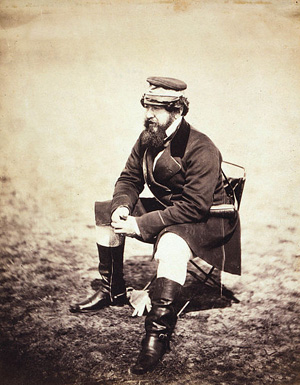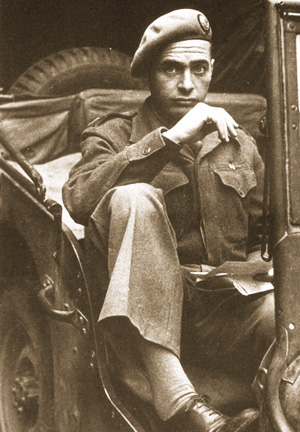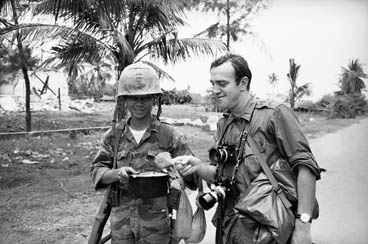You have no items in your cart. Want to get some nice things?
Go shoppingThe dangers of reporting the news from the frontline have become all too apparent (though perhaps the term frontline is inappropriate, since many of today’s conflicts appear, to the outsider, to be singularly lacking a frontline). In this era of satellite phones and 24-hour news, it has become even more important for reporters, photographers and cameramen to get into the heart of the action, bringing us the news as it happens.

One of the first war correspondents was William Howard Russell, who reported on the Crimean War for The Times in the mid-1850s. Born in Ireland in 1820, he became famous for his uncompromising view of the conflict, in particular the hardships suffered by the ordinary soldier in contrast to the military and government mismanagement of the war; his reports were partly responsible for the fall of Lord Aberdeen’s government in 1855. Russell was always close to military action, having been present at the major battles of Alma and Balaklava and having witnessed the Charge of the Light Brigade. As an account of the conflict, Russell’s Despatches from the Crimeamake a fascinating read.

Some fine books also emerged from journalists who followed the wars of the first half of the 20th century, amongst them African Trilogy by Alan Moorehead. Born in Australia, Moorehead became a foreign correspondent for the Daily Express in the 1930s and closely followed the campaigns in North Africa, Italy, and Normandy. Mediterranean Front, A Year of Battle, and The End of Africa were first published in 1944, when the war in North Africa was largely concluded, and offer the general reader so much more than just the usual dry story of battles and generals. I was lucky enough to pick up an old copy in a second-hand bookshop but I’m glad to see that this riveting trilogy has been republished recently as The Desert War. Moorehead also wrote novels, a biography of Field Marshal Montgomery, and two captivating—and now only slightly dated—histories on the Victorian exploration of Africa, The White Nile and The Blue Nile, both immensely readable and beautifully illustrated.

It was during the Vietnam War in the 1960s and early 1970s that the number of war correspondents on the ground escalated. Technology had advanced sufficiently to enable a short report to be dispatched by a correspondent to the many competing studios and newspapers whilst the action was going on all around. Although Dispatches by Michael Herr, about his life as a journalist in Vietnam, is often mentioned as the best book to come out of the Vietnam War, I still prefer the more conventional memoir—for example, Live from the Battlefield: from Vietnam to Baghdad by Peter Arnett. A New Zealander by birth, he worked for a number of newspapers—initially reporting from Vietnam—and was one of the last reporters in Saigon when it was finally overrun by North Vietnamese forces in 1975. In the 1980s and 1990s, Arnett was employed as a correspondent by CNN, covering wars across the world, including Afghanistan and the first Gulf War, reporting from Baghdad as the city was bombed by US forces.
Be warned though, these books do not make easy reads; though often exhilarating, they can also be extremely tense and harrowing. I find the ones written about more recent wars even more depressing because they don’t have that protective cloak of history, unlike Moorehead’s books, which were written over sixty years ago. Books such as My War Gone By, I Miss It So by Anthony Loyd about his experience as a journalist during the wars in Bosnia and Chechnya, The Forever War: Dispatches from the War on Terror by Dexter Filkins about Afghanistan and Iraq, and War Junkie by Jon Steele, a cameraman who has covered many war zones in the last thirty years, are certainly remarkable and probably essential reads, but you are left wondering: what it is that drives these correspondents to cover such dangerous events from the frontline?
Read, and find out. And please leave your suggestions, if any, for other great books on war correspondence.




